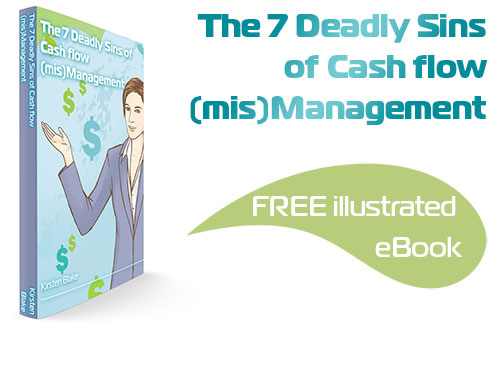

Let's Chat!
Tailoring the right solution for each business is what we are passionate about. Based on an initial chat with you, we'll be able to prepare a unique proposal for you and your business. We are based in Brisbane
Take a moment to connect with us using the form below, or call us directly on:
1300 255 337 (Mon. to Fri. 10 am - 4 pm):
Meaning/Definition from Oxford English Dictionary: "An accessible store of money kept by an organization for expenditure on small items." usage example that they give ‘I took the money out of the petty cash and paid her’
Do you have a small amount of money sitting somewhere in the office for small and seemingly insignificant purchases?
I’m talking about money for buying small items. Pens, sticky tape, coffee and all those tiny purchases you (supposedly) don’t need to enter into your records.
After all, if you keep some petty cash lying around for your employees to draw upon, no-one needs to annoy your accountant or bookkeeper. And above all, their endless requests would not annoy you as the business owner.
And to be free from those endless small requests would be...
Small Business Paradise!
Or would it?
Brace yourself, because in this article, I’m about to demonstrate why there is no such thing as petty cash in Australia.
Even though the term is used left right and center as an acceptable business practice, it simply is not acceptable.
The Truth About Petty Cash You Need To Know
Go ahead and search “Petty Cash ATO”. You will soon find a number of strict record keeping rules on the ATO website.
Even for the small amount of cash you have sitting in the tin box under the reception desk, you are required to keep a tight record of:
- all transactions going in and out
- all receipts
- running balance that should match the current amount
These records are then replicated in your accounting books, which means the data is entered manually and matched.
If all of that record keeping wasn’t already enough…
Add to this huge potential for loss to list:
Having incorrectly tracked loose cash around is one of the easiest ways for people to steal from your business.
Doesn’t sound like “petty cash” now, does it?
I hope you’re shaking your head “no,” and have come to understand why, both legally and practically, there is no such thing as “Petty Cash” in Australia.
The Old Fashioned Reason Why Some Bookkeepers Love “Petty Cash”
Some bookkeepers absolutely love “petty cash” and they are good at manual maintenance. Plus, they know just how important keeping accurate records is to the ATO.
And sure, it takes a lot of skill, attention to detail and, most importantly massive amounts of TIME!
Guess what?
Bookkeepers who love old fashioned “petty cash” are paid per hour. And they are happy as peaches to charge you for the inefficiencies of handling money according to tradition.
Here’s the good news:
You can save your business thousands of dollars by choosing one of (or a combination of) the approaches below.
Alternative Approach 1: Bank Account with Debit or Credit Card
A lot of banks in Australia will happily open you a very cheap (or even free) business bank account with a debit card.
Why?
Because, every time you spend, they get a little cut from your transactions. This doesn’t cost you anything because they profit through merchant fees. For you, $5 on your card is the same as $5 cash.
Even if you were billed a small amount per transaction, the admin fees for you would still wind up cheaper and the potential for theft inside your business goes significantly down.
For example, you can easily connect your bank account to your accounting software. This simple step lets you keep a close eye on every expenditure and make sure that every transaction is accounted for.
Advantages
- Most of the record keeping is done for you by the banking system
- Accurate transaction record, allows you to investigate when something goes wrong or missing
- Significant reduction in forgotten or unclaimed expenses
Disadvantages
- You or your bookkeeper still need to chase your employees for the receipts
- Proper access procedures required to keep it under control
Alternative Approach 2: Employee Expense Claims
As a system deployed by a business to process, pay, and audit employee-initiated expenses, using employee expense claims is a common practice across multiple businesses all around the world.
As an employer, you're entitled to claim GST credit when you reimburse an employee for a taxable expense that is directly related to your business activities. You can claim the credit in your activity statement the normal way once your employee gives you a tax invoice or receipt for the expense.
Advantages
- When employees spend their own money, they will think twice before making a purchase.
- You won’t need to spend time chasing valid claimable tax invoices or receipts. This headache becomes your employee's responsibility.
Disadvantages
- Not many employees are willing to spend their own money for your business. Plus they have to fill out forms and hope to be able to claim it from you one day.
- If done incorrectly, it can create a lot of unnecessary work for your bookkeeper and accountant, leading to additional administrative expenses.
- If done incorrectly using accounting software, this approach can significantly limit reporting transparency (if you want to know more, use chat on the right hand side or give us a call)
Alternative Approach 3: Accounts Payables
Accounts payables are systems deployed by a business to pay for business related expenses. If an employee needs something paid they submit an invoice or purchase order. Your bookkeeper processes that into the system for your approval and payment.
Advantages
- You have up to date and a clear list of what you owe, what needs to be approved and when it needs to be paid. You are in control.
- Significant reduction on yet another software subscription that drains money from your business (one that has been set up willy nilly by your employees)
- Tighter control over expenditure before it happens. This approach is used by a lot of larger organisations. Applied correctly, you can use it without losing operational flexibility.
- Increase in supplier efficiency. Let’s face it: the best time to keep your suppliers accountable is before your pay them.
- “No Invoice, No Payment” Policy really creates a lot of surprising and beneficial side effects for your business (more here...)
Disadvantages
- Yet another bureaucratic level that could slow some things that could otherwise get done quickly. However, with proper processes and procedures can be made easy without losing operational flexibility.
Conclusion and Benefits
Greg Appleby (former ATO Auditor, now retired) says:
“It is very important to move with the times. A cash tin was relevant in the fairly distant past when there were no debit or credit cards or computerised accounting software, and the cash tin and manual recording function were tightly controlled by the accountant or bookkeeper as part of a normal daily function. Let's remember that even small amounts are not "petty" when they go west or are poorly controlled. Make a decision on the best combination of methods based on business size, volume and size of transactions & then apply. The combination that is best for another business may not be the best fit for your business. Generally if you apply sound business principles, you will be well on the path to also satisfy ATO requirements.”
Depending on the size of your organisation, a solid combination of the approaches discussed above above can significantly:
- Improve cash flow by tightening up unnecessary and wasteful leaks
- Provide you with better decision making information
- Increase business profitability
- Proper compliance
So what do you say? Are you ready to get rid of the petty cash problems in your business? If you have any questions, give us a call. We’d love to help!

Subscribe by email and instantly get FREE Illustrated eBook. Adequate ‘positive’ cash flow is essential for the survival of any business, yet this is something that over 50% of small business owners struggle to manage.
